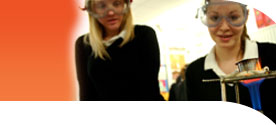



Assessment is part of normal teaching and learning. It's how learners get feedback on the success of their endeavours, and it's how teachers find out how well their learners are doing. Assessment can happen in many ways, not just by teachers marking written work. When planning teaching and learning, teachers need to address how learners are going to get feedback, for example through discussion, self-assessment or peer assessment.
The character of the assessment should be determined by what the assessment is for. For example, is the intention of the assessment to:
| inform the learners about themselves? | or | inform others about the learner? |
| produce personalised feedback so that the learner knows what to do next? | or | produce standardised feedback so the performance of one learner can be compared with others? |
| promote success and increase achievement? | or | gauge success and document achievement? |
Answers to these and other questions will determine the nature of the assessment, its outcomes (words or numbers), how frequent and how formal it will be, what size it is and whether it is standardised, how objective it is and who carries it out - the learners themselves, their peers, another audience or the teacher. By its very nature, most assessment is not one-size-fits-all but must be specific to the learner, personalised and therefore inclusive, that is, relevant to all learners in the class.
Setting up manageable systems for collecting evidence is vital. With care, the same evidence may be reinterpreted for a variety of purposes. This approach has been successfully rolled out in English and mathematics (through the Assessing pupil progress projects) and is being developed in science and the foundation subjects.
QCA is working with schools to develop examples of manageable ways of collecting evidence and providing feedback through assessment for learning and periodic assessments. It is also developing supplementary tasks, focused on key concepts and processes, that can provide supplementary evidence of learners' performance when reviewing progress and making periodic assessments. Drafts of these materials will be available in September 2007.